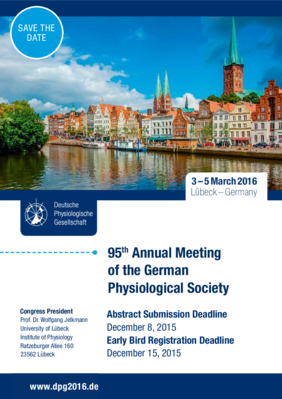will take place on Tuesday, February 2, 2016 from 17:15 to 18:15 hours in Lecture Hall H1, Turmgebäude.
Host: Prof. Dr. Thomas Münte
Department of Neurology
University of Lübeck
Abstract
In normal vision, attention is closely linked to the fovea. In turn, attentively processed objects are much more likely to be remembered. This raises the question whether foveal vision loss entails sub-optimal deployment of attention and impairs visual memory. To investigate this question, we examined visual memory for objects in naturalistic scenes in patients suffering from foveal vision loss due to age-related macular degeneration (AMD). A bit surprisingly, patients' memory performance was comparable to controls. In contrast, memory performance was impaired in young normal-sighted observers who searched with gazecontingent central scotoma simulations. Taken together, the results suggest that patients can learn to efficiently explore their environment and encode objects into memory in the presence of foveal vision loss. In a second line of experiments, we investigated the effect of foveal vision loss on incidental spatial context learning. In the contextual cueing paradigm, incidental learning of repeated distractor configurations leads to more efficient search in repeated compared to random search arrays. In comparison to normal contextual cueing in age-matched controls, AMDpatients showed severe deficits. Experiments with simulated gaze-contingent central scotomata in young normal-sighted observers showed that initial loss of contextual cueing could be overcome after several training sessions. In summary, foveal vision loss has consequences for visual learning and memory that are usually not considered in these patients. Visual exploration training may become a tool to improve these deficits.
CV
Prof. Pollmann studied Psychology at University of Göttingen and University of California, Los Angeles and earned his PhD at Ludwig Maximilian University of Munich. After his Habilitation in Psychology at Free University of Berlin he worked as Group Leader at the Max-Planck-Institute of Cognitive Neuroscience, Leipzig and as Professor of Psychology at the Medical Faculty of University of Leipzig. Since 2004 he has been Full Professor of Experimental Psychology at University of Magdeburg. He is member of Directorate at the Center for Behavioral Brain Sciences, Magdeburg and Vice Dean of the Faculty of Natural Sciences at University of Magdeburg.
CBBM Lecture "How foveal vision loss affects visual learning and memory"


